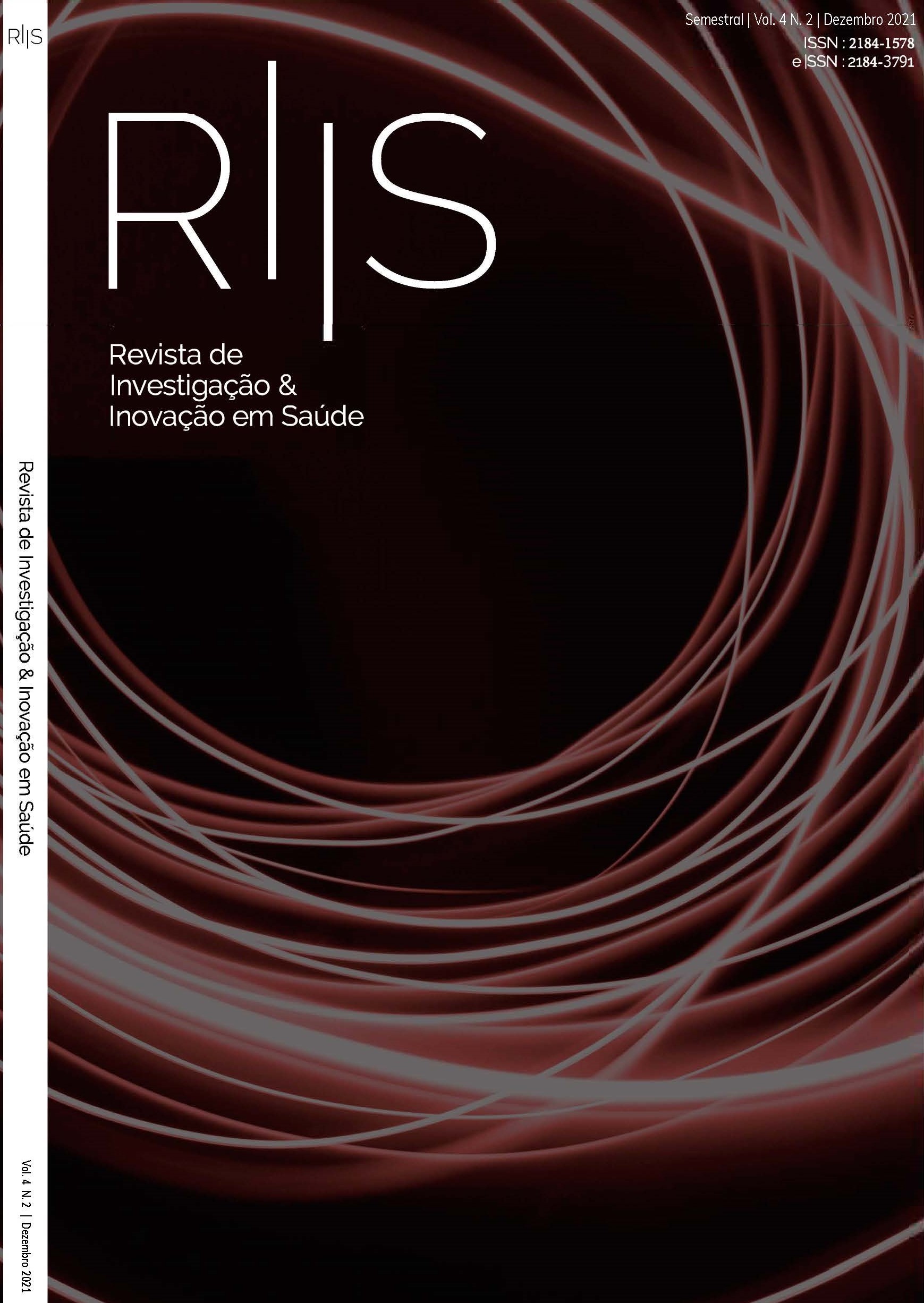Self-care deficit versus the potential to improve self-care: explanation of the nurse's clinical judgments
DOI:
https://doi.org/10.37914/riis.v4i2.155Abstract
Background: people who become functionally dependent due to serious illness and/or the worsening of a chronic illness have different recovery paths. The attribution of the nursing diagnosis of self-care deficit versus potential to improve self-care requires, on the part of the nurse, a rigorous clinical judgment, for which a set of diagnostic activities is necessary. Objectives: the present study sought to identify the assumptions used by expert nurses when formulating the clinical judgment of self-care deficit versus the potential to improve self-care Methodology: qualitative design. Data were generated in two focus group meetings that included eleven nurses experienced in caring for persons with functional dependence and self-care defict. Previously prepared structured questions were used to facilitate discussion. The focus group meetings were recorded in audio and transcribed. Inductive content analysis was used to identify emerging themes. The checklist Consolidated Criteria for Reporting Qualitative Research (COREQ) was also used. Results: nurses` decision-making depends: the factors of influencing the potential to improve self-care abilities of a person with functional dependence, the domain of influence of these factors, and three fundamental aspects to consider when evaluating a person with functional dependence. Conclusions: the absence of recovery potential can rarely be deduced. People without cognitive impairment or with mild cognitive impairment present highest potential for recovery.
References
Bidwell, J. T., Vellone, E., Lyons, K. S., Agostino, F. D. Riegel, B., Hiatt, S. O., Alvaro, R. & Lee, C. S. (2015). Determinants of Heart Failure Self-Care Maintenance and Management in Patients and Caregivers: A Dyadic Analysis. Res Nurs Health, 38(5), 392-402. https://doi.org/10.1002/nur.21675 DOI: https://doi.org/10.1002/nur.21675
Chang, L. Y., Wu, S. Y., Chiang, C. E. & Tsai, P. S. (2017). Depression and self-care maintenance in patients with heart failure: A moderated mediation model of self-care confidence and resilience. European Journal of Cardiovascular Nursing, 16(5), 435-443. https://doi.org/10.1177/1474515116687179 DOI: https://doi.org/10.1177/1474515116687179
Chen, Y., Zou, H., Zhang, Y., Fang, W. & Fan, X. (2017). Family Caregiver Contribution to Self-care of Heart Failure: An Application of the Information-Motivation-Behavioral Skills Model. Journal of Cardiovascular Nursing, 32(6), 576-583. DOI: https://doi.org/10.1097/JCN.0000000000000398
Dineen-Griffin, S., Garcia-Cardenas, V., Williams, K & Benrimoj, S. I (2019). Helping patients help themselves: A systematic review of self-management support strategies in primary health care practice. Plos one, 14(8). https://doi.org/10.1371/journal.pone.0220116 DOI: https://doi.org/10.1371/journal.pone.0220116
Duff, K., Mold, J. W., Roberts, M. M. & McKay, S. L. (2007). Medical burden and cognition in older patients in primary care: Selective deficits in attention. Arch of Clin Neuropychol, 22(5), 569-575. https://doi.org/10.1016/j.acn.2007.03.007 DOI: https://doi.org/10.1016/j.acn.2007.03.007
International Council of Nurses (ICN) (2019). International Classification for Nursing Practice ICNP® https://www.icn.ch/what-we-do/projects/ehealth-icnptm/icnp-browser
International Organization for Standardization – ISO 18104. (2014). Health informatics – Categorial structures for representation of nursing diagnoses and nursing actions in terminological systems. https://www.iso.org/standard/59431.html
Jaarsma, T., Cameron, J., Riegel, B. & Strömberg, A. (2017). Factors related to self-care in heart failure patients according to the middle-range theory of self-care of chronic illness: A literature update. Current Heart Failure Reports, 14(2), 71-77. https://doi.org/10.1007/s11897-017-0324-1 DOI: https://doi.org/10.1007/s11897-017-0324-1
Lee, Y., Park, J. & Jang, M. (2018). Perceived effects of home renovation on independence of physically disabled Koreans living at home. Disability and Rehabilitation, (40)20, 2380-2387. https://doi.org/ 10.1080/09638288.2017.1334837 DOI: https://doi.org/10.1080/09638288.2017.1334837
Lourenço, M. C. G. (2015) Modelo de intervenção de enfermagem em cuidados continuados integrados. Uma abordagem centrada na pessoa dependente para o autocuidado. [Tese de Doutoramento não publicada]. Universidade Católica do Porto http://hdl.handle.net/10400.14/20685
Queiros C., Silva M. A. T. C. P., Cruz I., Cardoso A. & Morais E. J. (2021) Nursing diagnoses focused on universal self-care requisites. International Nursing Review 0, 1–13 DOI: https://doi.org/10.1111/inr.12654
Krueger, R. A. & Casey, M. A. (2014) Focus groups: A pratical guide for applied research (5ª ed). Sage Publications.
Pinto, S., Caldeira, S. & Martins, J. (2012) A esperança da pessoa com cancro – estudo em contexto de quimioterapia. Revista de Enfermagem Referência (III)7, 23-31. https://doi.org/ 10.12707/RIII11148 DOI: https://doi.org/10.12707/RIII11148
Riegel, B., Jaarsma, T. & Strömberg, A. (2012). A Middle-Range Theory of Self-Care of Chronic Illness. Adv Nursing Science, 35, 194-204. http://dx.doi.org/10.1097/ANS.0b013e318261b1ba DOI: https://doi.org/10.1097/ANS.0b013e318261b1ba
Riegel, B., Moser, D. K., Buck, H. G., Vaughan, V. D., B.Dunbar, S., Lee, C. S. & Webber, D. E. (2017). Self-care for the prevention and management of cardiovascular disease and stroke: A scientific statement for healthcare professionals from the American heart association. Journal of the American Heart Association, 6(9), 1-27. https://doi.org/ 10.1161/JAHA.117.006997 DOI: https://doi.org/10.1161/JAHA.117.006997
Roelands, M., Oost, P. V., Buysse, A. & Depoorter, A. (2002). Awareness among community-dwelling elderly of assistive devices for mobility and self-care and attitudes towards their use. Social Science & Medicine 54,1441–1451. DOI: https://doi.org/10.1016/S0277-9536(01)00126-5
Silva E. S. (2019). Pessoa dependente no autocuidado com potencial para melhorar: construção de um instrumento de avaliação. [Dissertação de mestrado não publicada]. Escola Superio de Enfermagem do Porto. http://hdl.handle.net/10400.26/31954
Schulman-Green, D., Jaser, S. S., Park, C. & Whittemore, R. (2016). A metasynthesis of factors affecting self-management of chronic illness. Journal of Advanced Nursing, 72(7), 1469-1489. https://doi.org/10.1111/jan.12902 DOI: https://doi.org/10.1111/jan.12902
Strauss, A. & Corbin, J. (2014) Basics of Qualitative Research: Techniques and Procedures for Developing Grounded Theory (4ªed). Sage Publication, Inc
Vellone, E., Pancani, L., Greco, A., Steca, P. & Riegel, B. (2016). Self-care confidence may be more important than cognition to influence self-care behaviors in adults with heart failure: Testing a mediation model. International Journal of Nursing Studies, 60, 191-199. https://doi.org/10.1016/j.ijnurstu.2016.04.016 DOI: https://doi.org/10.1016/j.ijnurstu.2016.04.016
Voils, C., I., Chang, Y., Crandell, J., Leeman, J., Sandelowski, M. & Maciejewski, M., L. (2012). Informing the dosing of interventions in randomized trials. Contemporary Clinical Trials, 33(6), 1225-1230. doi: 10.1016/j.cct.2012.07.011 DOI: https://doi.org/10.1016/j.cct.2012.07.011
Who. World Health Organization. (2019). WHO consolidated guideline on self-care interventions for health: Sexual and reproductive health and rights. https://apps.who.int/iris/bitstream/handle/10665/325480/9789241550550-eng.pdf?ua=1
Downloads
Published
How to Cite
Issue
Section
License
Copyright (c) 2021 Marisa Lourenço, Paula Encarnação, Teresa Martins, Maria Araújo, Paulo Puga Machado

This work is licensed under a Creative Commons Attribution 4.0 International License.















